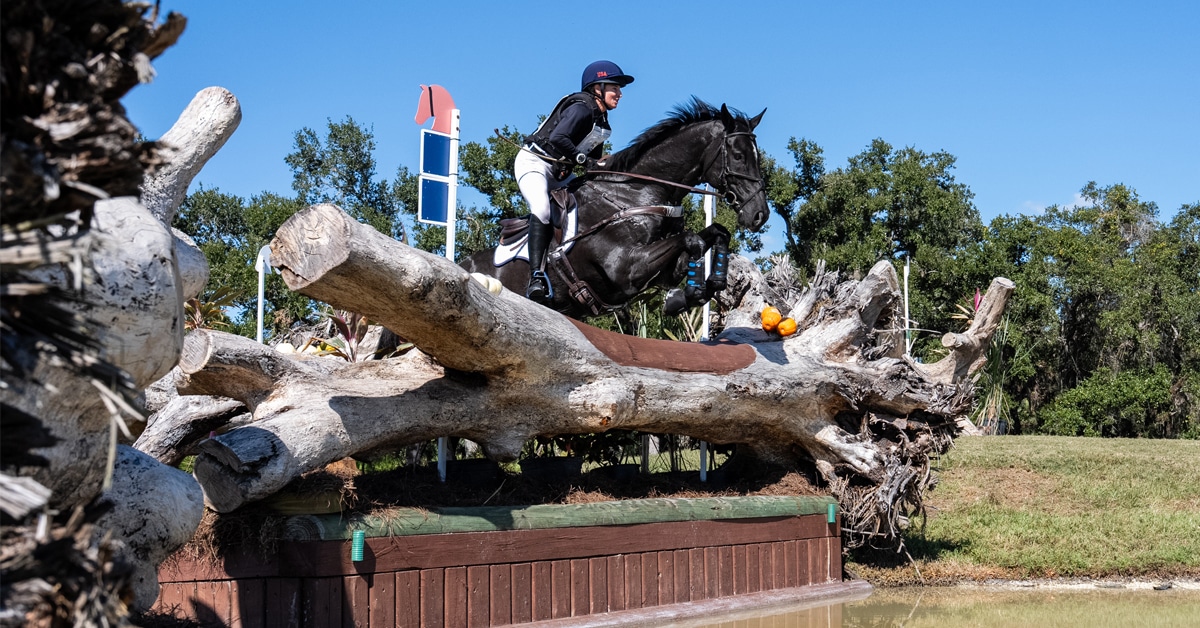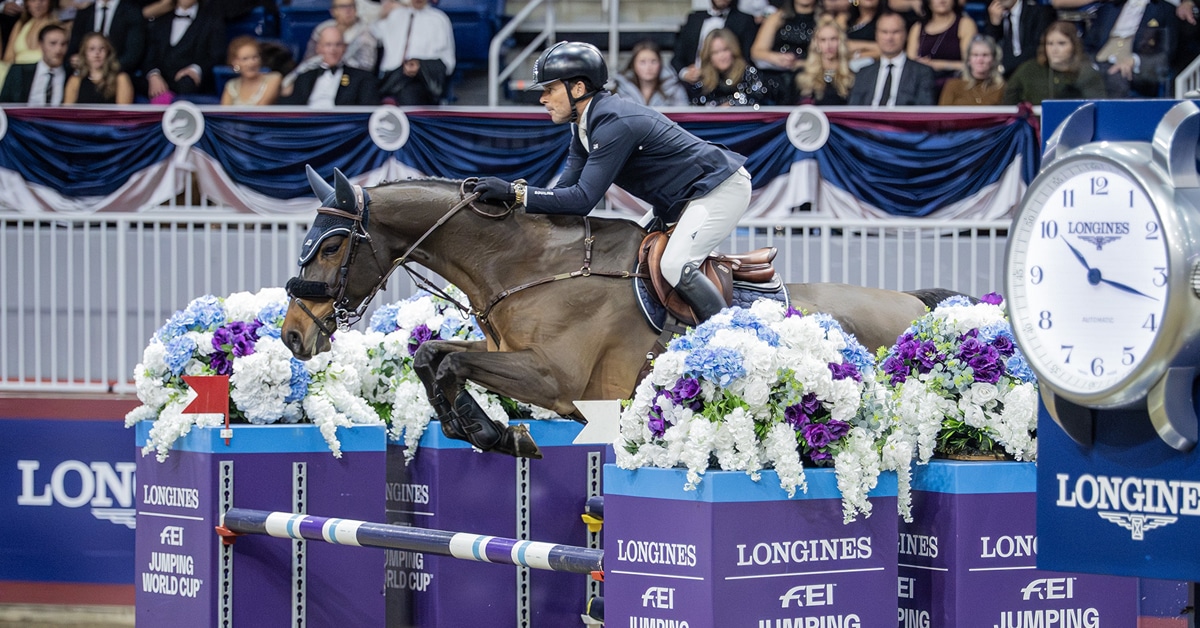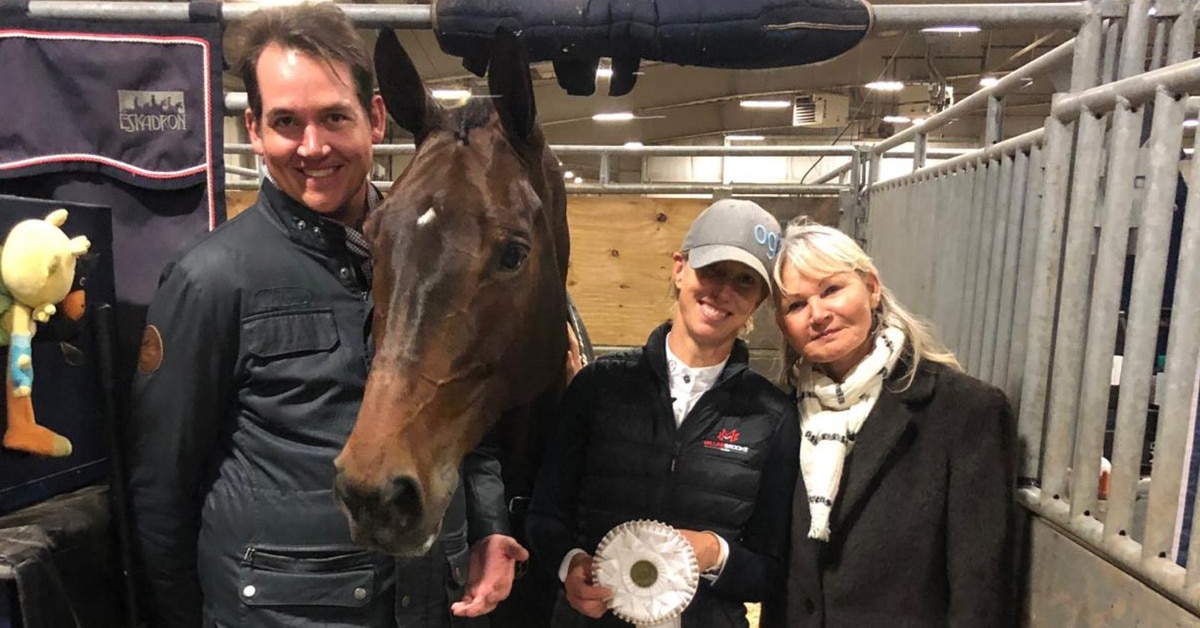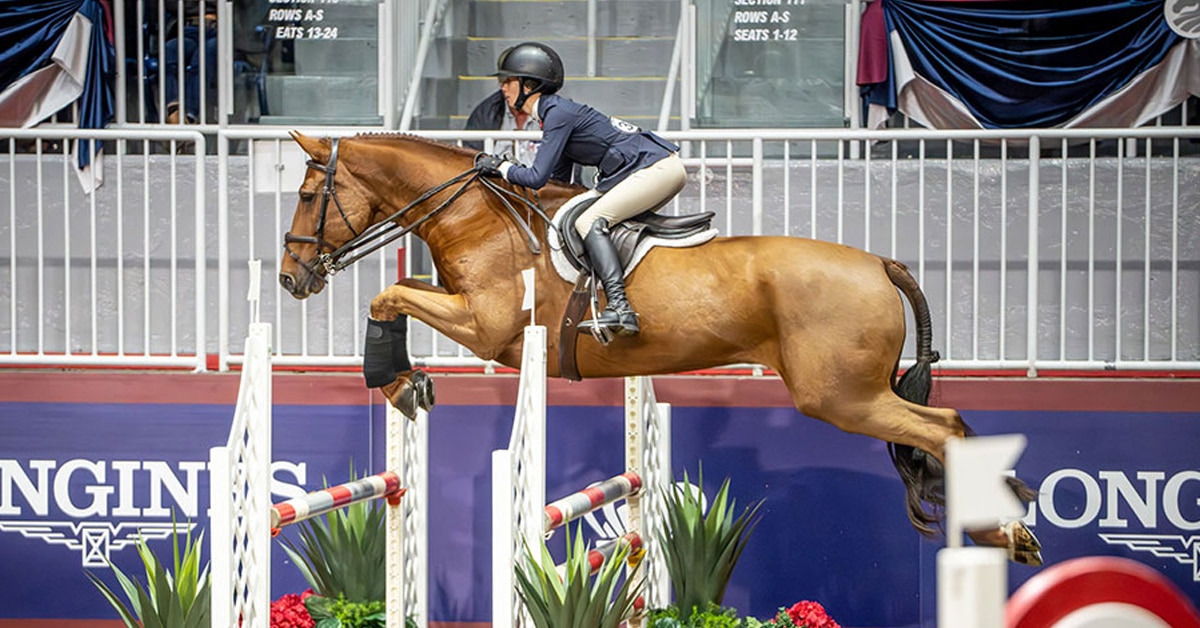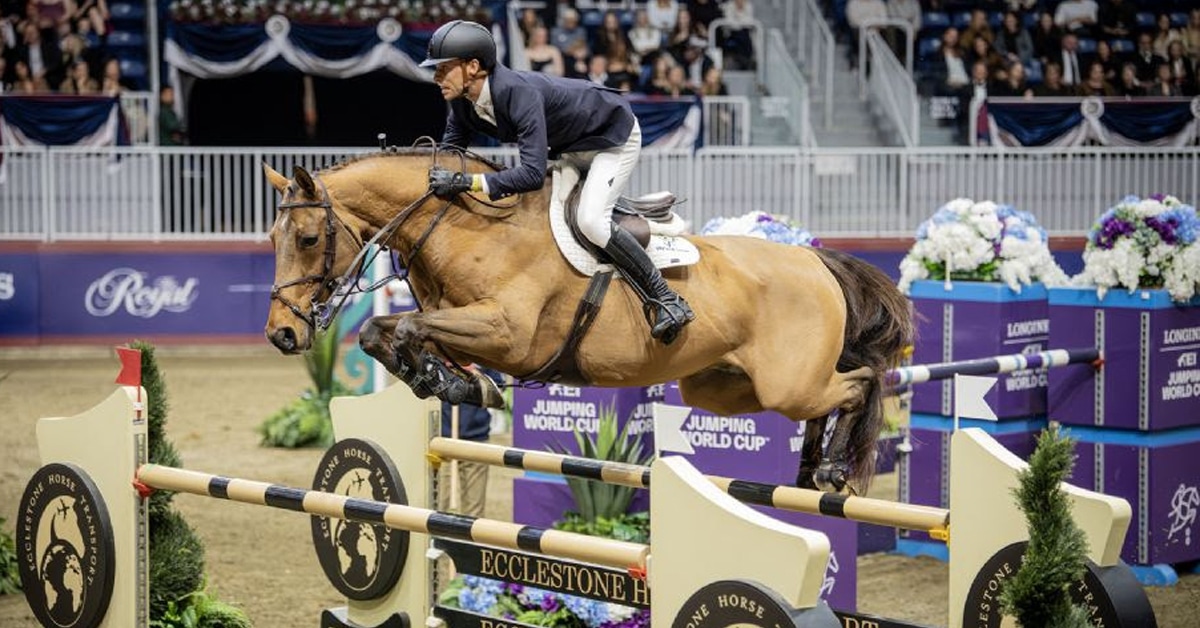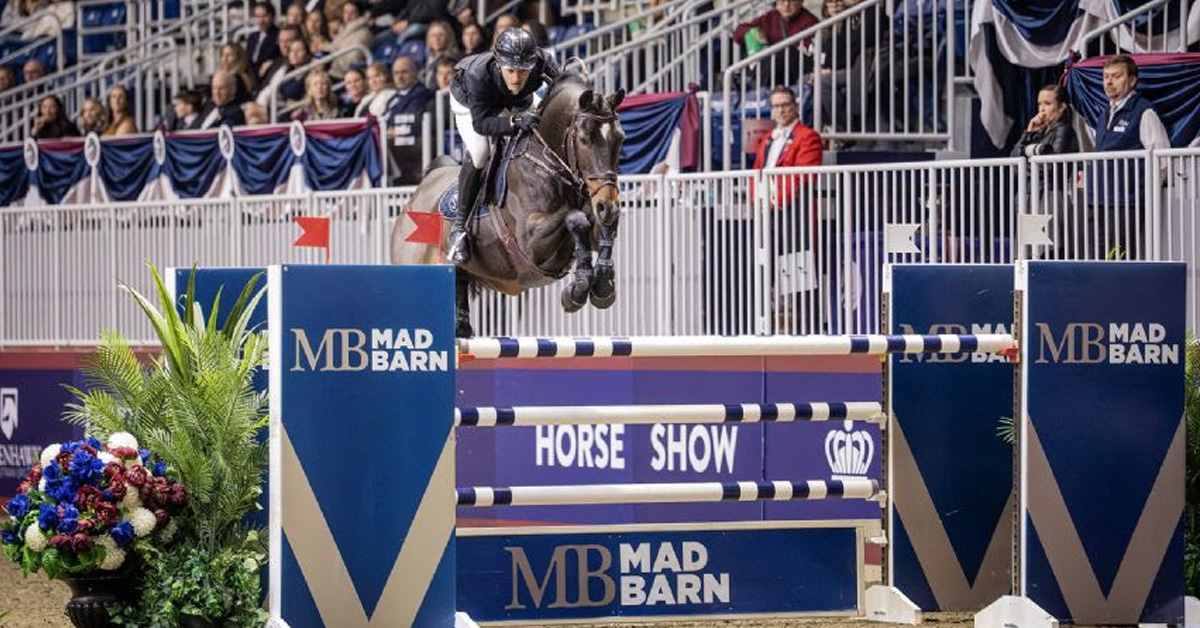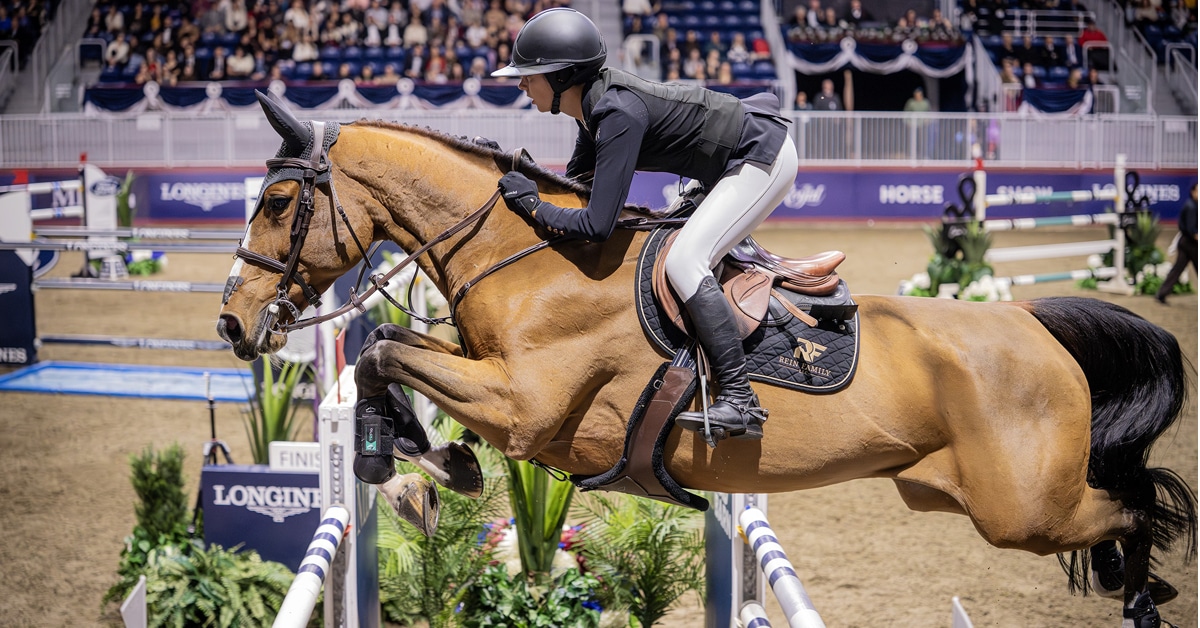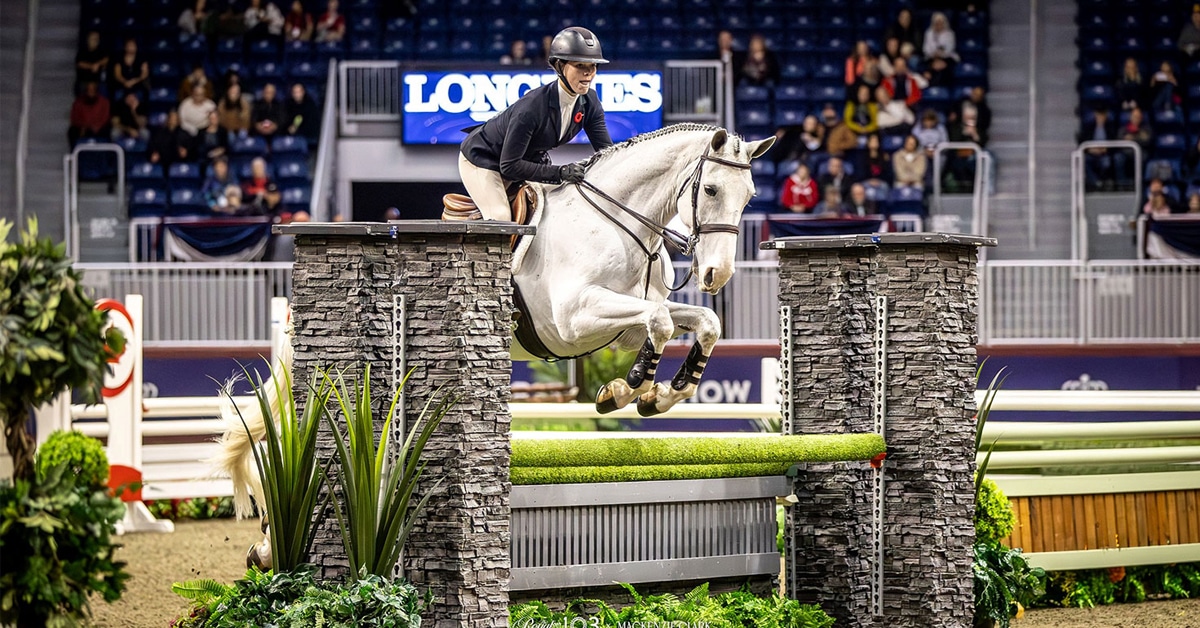Irish Olympian Billy Twomey has failed to overturn his elimination from a Wellington CSI5* grand prix for blood on the horse’s flanks, after returning the winning round.
This is the first time the FEI Tribunal has scrutinised the wording of FEI rules for blood eliminations, and the varied definitions of “in competition. ” It is also the second time in a month that the scope of ground jury jurisdiction has come under the legal microscope – under sports law, a field-of-play decision is unchallengeable.
Twomey was eliminated after the $US 99,000 to-the-winner jump-off on March 15, after routine boot and bandage control found blood on Lady Lou’s left flank from spurs. As a result, Twomey was demoted to sixth.
Twomey was represented by UK attorneys Keystone Law, who argued a large number of legal points to the head of the Tribunal, José A. Rodriguez Alvarez, sitting as a panel of one.
These included:
- That matters in FEI General Regulations (GRs) listed ground jury decisions as matters only arising during the course of a jumping round;
- This was not, as stated by the FEI, elimination for veterinary reasons.
- The FEI’s wrong assertion that “the blood occurred during the competition”. In video close-ups, there was no blood while he remained in the ring, before leaving through the hustle and bustle of well-wishers, when he assumes the mark occurred.
- He was the last to go and jumped the fastest clear, so the sporting contest was over, and he was announced the winner.
- That the FEI Stewards Manual protocol for blood, was implemented deficiently. It is specific to “any time in connection with the warm-up for a competition or at any time in connection with a horse leaving a competition arena”. By contrast under Jumping Rules (JRs) mandatory elimination enables the ground jury to act immediately upon seeing blood so the round can be stopped. As Twomey was not eliminated as per the JRs, the officials should have addressed blood on the flanks in connection with having left the arena;
- Spot elimination during a round is allowed where a horse was bleeding from the nose. But Twomey’s elimination was only starting from the point of post-round Boot and Bandage Control.
- The ground jury decision was arbitrary, assuming that because there was a mark after the finish, it was there during the competition.
- That Tribunal should draw an adverse inference [negative conclusion] from the incomplete disclosure of officials’ reports from the day.
Twomey recalled that people were gathering to congratulate him, and with less room to get through Lady Lou became unsettled and bumped the exit archway. At boot and bandage control he was told blood could be seen but no pictures were taken (which allegation was disputed). He was allowed to walk around and only after about 20 to 30 minutes was the glove test conducted. It was a hot day and a veterinarian said gloves could induce the bleeding.
In response, the FEI did not believe officials took a wrong decision. Twomey could have lodged a protest within 30 minutes, but did not. It was the riders’ responsibility to know the rules; there was no remedy later.
While Twomey argued that the ground jury decision did not fall into either of two categories, the FEI said it fell into both. Tribunal clarified these conditions do not have to be concurrent.
The Tribunal noted various arguments about how “Competition” and “In-Competition” is defined. “In-Competition” in the EADCMRs (anti doping rules) relates to doping control and cannot be applied in this case. The same time-frame reference is found in FEI Veterinary Regulations (VRs). The JRs do not define Competition, while the GRs are “not very helpful” in determining at what point a Competition is over. The definitions of Period of Events in both VRs and GRs are more of assistance. Tribunal said “the only logical explanation is that a competition cannot be understood as being concluded unless the final and official results have been announced.
“This does not mean when the Appellant had completed his jump-off … but only once the Ground Jury has taken into consideration all eventual disqualifications, eliminations, protests etc.
“If he had gone earlier in the jump-off, it would be clear that the competition was not completed after his performance. In any case, Boot and Bandage Control is part of the competition, and – as in the case at hand – might determine the final and official results.”
The Tribunal said the Stewards Manual is guidance and not one of the leading body of rules. In any event it states that FEI Statutes, GRs or Sport Rules have precedence when there is conflict.
The Tribunal also disagreed this was not an elimination for veterinary reasons. Stewards – despite not being veterinarians – were entitled to conduct the boot and bandage control and more specifically the Protocol for blood on flanks, thus reaching conclusions of a veterinary nature.
In dismissing the appeal, the Tribunal said no deposit shall be returned to the Appellant and ordered each party to pay their own costs.
More News
